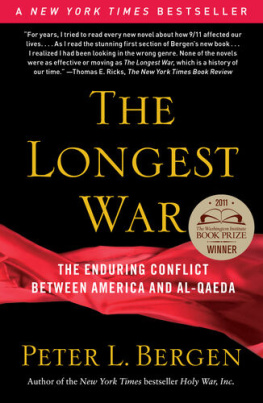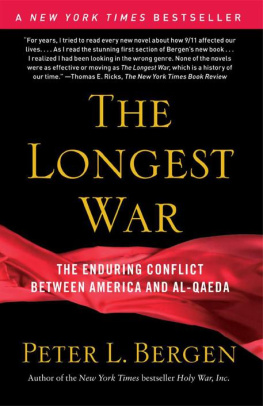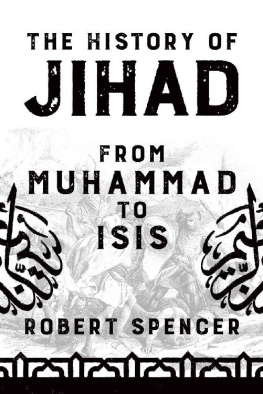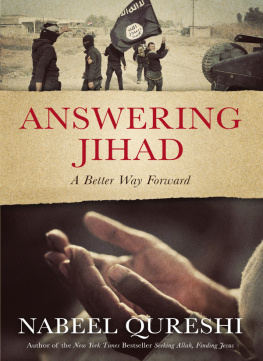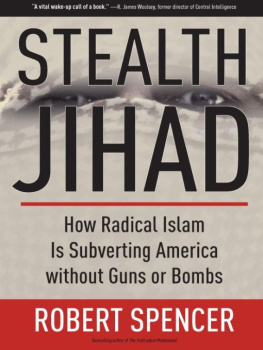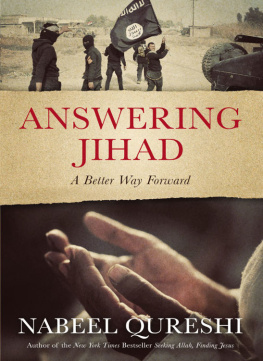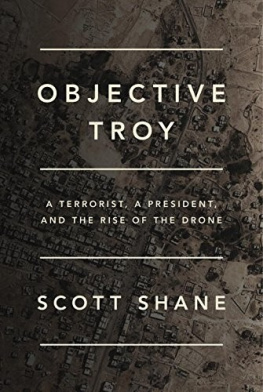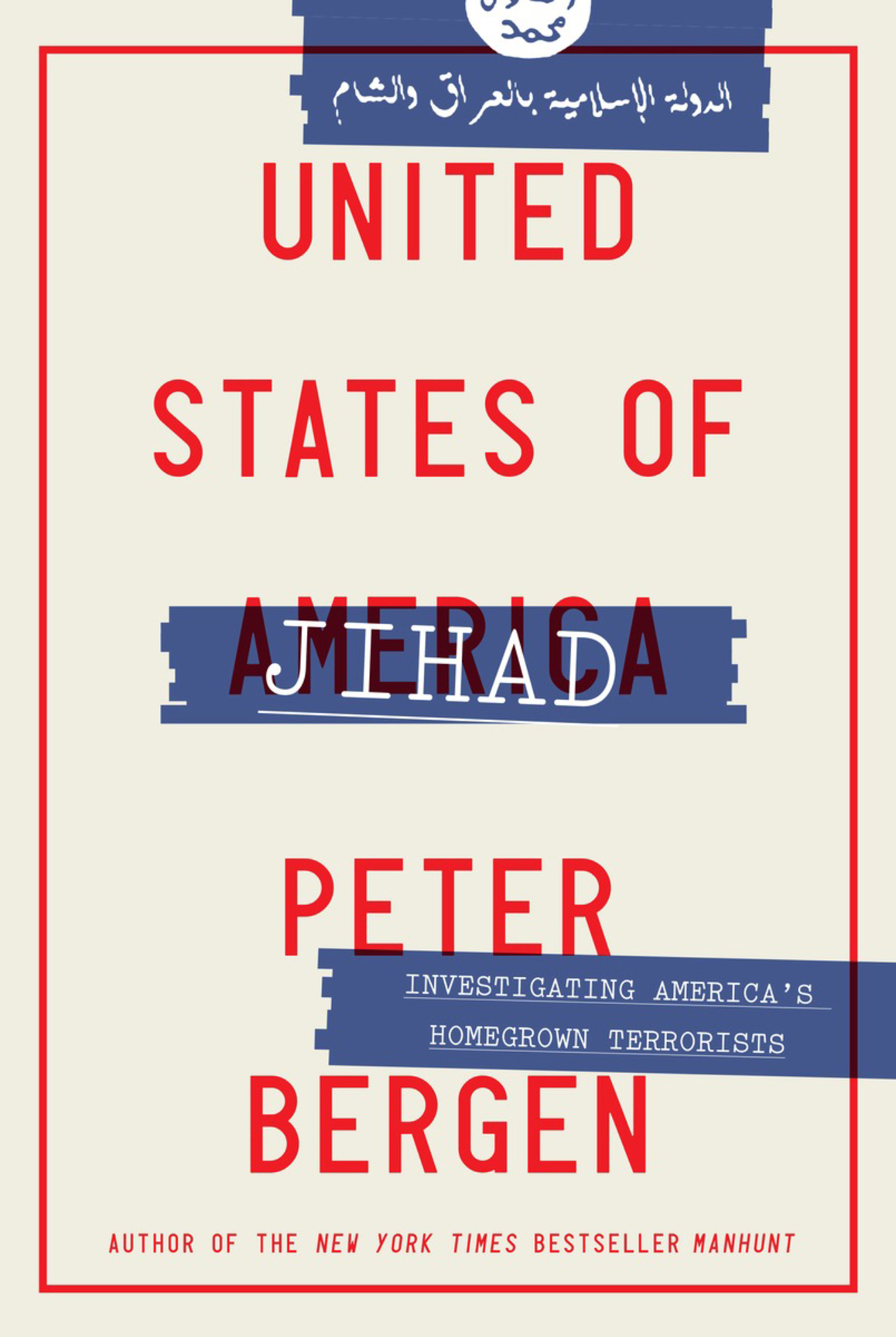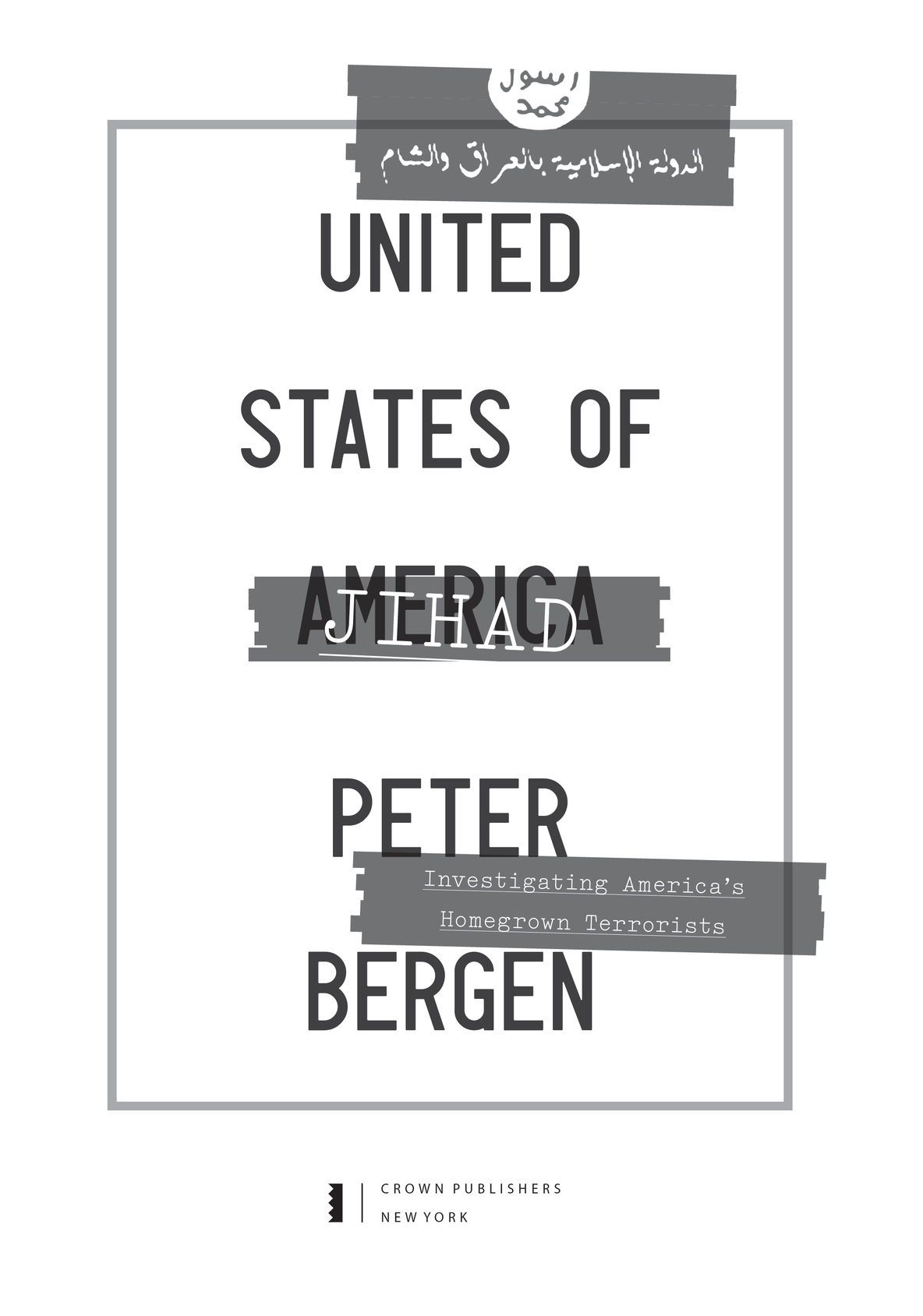Copyright 2016 by Peter L. Bergen
All rights reserved.
Published in the United States by Crown Publishers, an imprint of the Crown Publishing Group, a division of Penguin Random House LLC, New York. www.crownpublishing.com
CROWN is a registered trademark and the Crown colophon is a trademark of Penguin Random House LLC.
Library of Congress Cataloging-in-Publication Data is available upon request.
WHOEVER FIGHTS MONSTERS SHOULD SEE TO IT THAT IN THE PROCESS HE DOES NOT BECOME A MONSTER. AND IF YOU GAZE LONG ENOUGH INTO AN ABYSS, THE ABYSS WILL GAZE BACK INTO YOU.
AMERICANS FOR ISIS
AGAINST THEM MAKE READY YOUR STRENGTH TO THE UTMOST OF YOUR POWER, INCLUDING STEEDS OF WAR, TO STRIKE TERROR INTO [THE HEARTS OF] THE ENEMIES OF ALLAH.
The Koran
O n the thirteenth anniversary of 9/11, nineteen-year-old Mohammed Hamzah Khan sent an e-mail to the U.S. State Department inquiring about the application he had made for a passport, which had still not arrived. Two weeks later Khan paid $2,679 for flights from Chicago to Vienna and then on to Istanbul for himself and his two younger siblings. He had planned meticulously, saving up the money for the tickets while working at a local big-box home supply store, assembling tourist visas for Turkey, and packing sleeping bags and clothes for the trip. Khan had met someone online who had provided him with the number of a contact in Istanbul who would help to get him and his siblings to the Turkish-Syrian border, and from there on to the region occupied by the Islamic State of Iraq and Syria (ISIS).
Accompanying Khan would be his seventeen-year-old sister, Mina, and his sixteen-year-old brother, Khalid, all three excited to make their pilgrimage to the Promised Land. Mina planned to marry an ISIS fighter, while Khan himself planned to serve in a combat role perhaps, or with the groups police force. As he contemplated the trip, Khan doodled in his notebook a picture of a fighter with the legend Come to Jihad in Arabic behind him, as well as the distinctive ISIS flag: white Arabic letters on a black background. Meanwhile, Mina watched Saleel Sawarim (The Clanking of the Swords), one of a series of one-hour videos showing summary executions of ISISs enemies. She later tweeted that she had watched it, including emoticons of a smiley face and a heart.
Earlier that month, on September 2, 2014, American journalist Steven Sotloff had been executed by ISIS following a brutal imprisonment. The beheadings of both Sotloff and his fellow hostage, James Foley (also an American journalist), were videotaped, carried out off-camera while a black-clad terrorist demanded that U.S. air strikes against ISIS cease. In an unmistakable London accent, the terrorist addressed President Barack Obama, promising that just as your missiles continue to strike our people, our knife will continue to strike the necks of your people.
According to a Wall Street Journal/NBC poll, the executions were the most widely followed news story of the past five years in the United States, provoking widespread outrage. Yet even as the story developed, the three American teenagers living in suburban Chicago were finalizing their plans to join what they saw as the perfect Islamic state. Hamzah Khan and his siblings saw the soldiers of ISIS not as fanatical, Taliban-style murderers, but as the creators of a utopia.
Khan, who had been six at the time of the 9/11 attacks, wrote a three-page letter to his parents explaining why he was leaving Chicago. He told them that an Islamic utopia had been established by ISIS and that he felt obligated to migrate there, grandly extending an invitation to my family to join him. He couldnt bear that his American tax dollars would be used to kill my Muslim brothers and sisters, and wrote that he was upset by the depravity of the West, which he described as getting more immoral day by day. He didnt want his own children to be exposed to filth like this. Writing in capital letters, Khan instructed his parents to FIRST AND FOREMOST, PLEASE MAKE SURE NOT TO TELL THE AUTHORITIES.
Khans siblings also wrote letters. His brother wrote that the evil of this country makes me sick, citing the deaths of innocent Afghan children in attacks by American drones. His sister wrote of her longing for death and the afterlife. Both begged their parents not to call the police, seeming to understand that joining ISIS was viewed as a crime by American authorities.
The infatuation the Khan teenagers felt for ISIS was hard to square with their upbringing. Their father, Shafi, and mother, Zarine, had come to the United States from India as college students, and both readily embraced life in America, which they viewed as a paradise. Even now, Zarine says, Everything is so organized. The people are so nice. You know everything is by the rules. Her husband, Shafi, explains, Theres a lot of opportunities. You can do anything you want. You can be a lawyer. You can be a doctor. You can be a businessman. You can study whatever you like. While he earned a degree in environmental science from Northeastern Illinois University, Shafi worked as a gift store supervisor at Chicagos OHare Airport before going on to work for an Islamic charity. Zarine stayed at home with their five children. They became U.S. citizens.
The household in which the Khan children grew up was observant but not extreme. The Khan parents went out of their way to shield their children from elements of American culture they deemed too permissive, such as television shows that featured profanity. When the kids were young the TV broke, and it was never replaced. Zarine wore a veil, and all the Khan children attended Islamic schools; this was partly because the education there was better than in the local public schoolsin India, Zarine and Shafi had attended Catholic schools for the same reasonbut also because the Khan parents wanted their children to grow up as practicing Muslims. When Hamzah turned thirteen he spent more than two years learning to recite the Koran from memory, a feat that entails memorizing some six thousand Arabic verses.
Yet even as Zarine and Shafi respected Muslim traditions, they raised their children to be Americans. The children grew up playing basketball and reading Marvel comics and Tintin books. They shopped at Walmart and went on a vacation to Niagara Falls. The whole family pitched in to do yard work. During high school Hamzah volunteered at the local mosque but also read Japanese manga. He was a fan of TV shows such as



